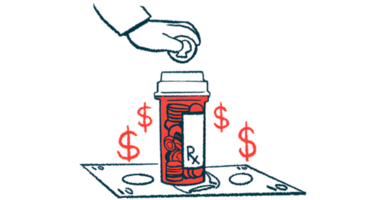Yale trial could mark 1st step to preventive treatment in Parkinson’s
$13.2M Marcus Foundation grant will support study of autoimmune therapy

A $13.2 million grant from The Marcus Foundation will support a Yale School of Medicine clinical trial that could mark the first step toward a preventive treatment for Parkinson’s disease, according to a Yale press release.
The trial will assess whether an existing treatment for autoimmune disorders can impede the emergence of Parkinson’s symptoms.
While current treatments for the disease are aimed at slowing progression and making it more manageable to live with Parkinson’s, this new strategy aims to potentially prevent symptoms from starting. The study will be led by David Hafler, MD, chair of the Yale department of neurology, and Jesse Cedarbaum, MD, a professor of neurology.
Specifically, the trial will test the hypothesis that inflammatory signaling plays a key role in Parkinson’s development. To do so, it will seek to block such signals using Humira (adalimumab), an approved treatment for autoimmune conditions.
“We are thrilled that, thanks to The Marcus Foundation, we can test a readily available treatment that holds the potential to change the standard of care for Parkinson’s disease,” Hafler said. “If successful, this trial stands to benefit immediately the lives of patients and families facing devastating diagnoses.”
Study will test Humira as potentially preventive treatment in Parkinson’s
Central to the Yale study is a syndrome called REM Sleep Behavioral Disorder, or RBD, a well-established risk factor for Parkinson’s. In RBD, individuals physically — and often violently and vividly — act out their dreams.
About half of those who develop RBD will manifest, within 10 years, Parkinson’s motor symptoms such as tremor, rigidity, slowed movements known as bradykinesia, and difficulties walking. Over time, some RBD patients also will develop nonmotor symptoms — potentially including cognitive changes, depression, and anxiety — that are characteristic of Parkinson’s, according to the Yale researchers.
Importantly, though, some Parkinson’s patients do not develop RBD until after motor symptoms begin. Still others with Parkinson’s never develop RBD. It is unclear why some patients experience RBD while others do not.
The results of a recent study suggest that patterns of brain damage in Parkinson’s differ based on whether the patients have RBD. These findings indicate that such patterns are similar among individuals with the progressive neurodegenerative disease who develop RBD symptoms before or after the appearance of Parkinson’s motor symptoms.
Hafler and his team have discovered the presence of inflammation in the spinal fluid — the liquid that surrounds the brain and spinal cord — of those with RBD. In addition, they found that blocking tumor necrosis factor-alpha (TNF), an inflammatory protein produced by the body’s immune cells, can potentially halt Parkinson’s development.
Now, the coming trial will evaluate whether being treated with the anti-TNF therapy Humira can prevent Parkinson’s-associated symptoms in those with RBD.
The clinical impact of the study could potentially help patients by preventing emergence of the debilitating motor and cognitive symptoms of Parkinson’s.
The study, according to the Yale School of Medicine, is the first large-scale effort to test such a hypothesis.
“We are grateful to The Marcus Foundation for its generosity and commitment to supporting our innovative translational research in neuroscience, especially on the pathogenesis [development} and treatment of neurodegenerative conditions such as Parkinson’s disease,” said Nancy J. Brown, MD, the school’s dean.
“The clinical impact of the study could potentially help patients by preventing emergence of the debilitating motor and cognitive symptoms of Parkinson’s,” Brown said.
The Marcus Foundation, which provides funding support to areas of interest including medical research, is chaired by Bernie Marcus, co-founder and former chairman and CEO of The Home Depot. The Foundation was created in 2009.







